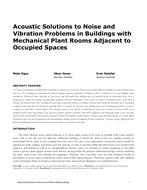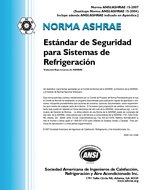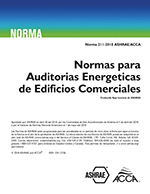Description
An increase in population and limited land availability in modern cities means that concrete and steel frame high-rise buildings are being constructed more than ever. These buildings are technologically advanced, offering occupants comfortable environments, which is achieved by the use of building services installations. Mechanical rooms form part of these services and with multi-storey buildings they are inevitably located on intermediate floors, close to occupied areas. Noise and vibration generated from equipment and other installations in these rooms is emitted to surrounding spaces in the form of airborne and structure borne noise. Installing the correct type of vibration isolation can eliminate structure borne noise from machinery that is transmitted as impact sound and reduce the vibration to acceptable limits. To overcome the air borne noise, floating systems can be implemented, which are based on creating an air gap with a resilient surface. These floating systems are very effective in eliminating air borne noise by acting as barriers, which can be installed on walls, floors and ceilings in any room that requires acoustical treatment. Since MEP equipment and installations differ in size and shape and have their own operating characteristics, acoustical treatment and vibration isolation requires a technical and specialized approach. To achieve higher performance levels each piece of equipment will need individual attention besides investigating the whole installation. A general strategy together with key points for implementing acoustic insulation for mechanical spaces are evaluated in this paper.
Citation: 2nd Intl Conf: Efficient Bldg Design
Product Details
- Published:
- 2016
- Number of Pages:
- 7
- Units of Measure:
- Dual
- File Size:
- 1 file , 1.5 MB
- Product Code(s):
- D-ICEB16-01




